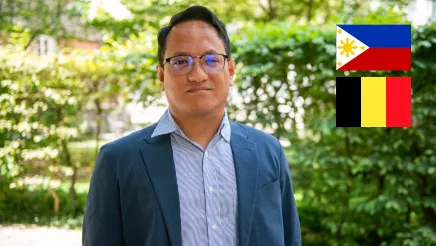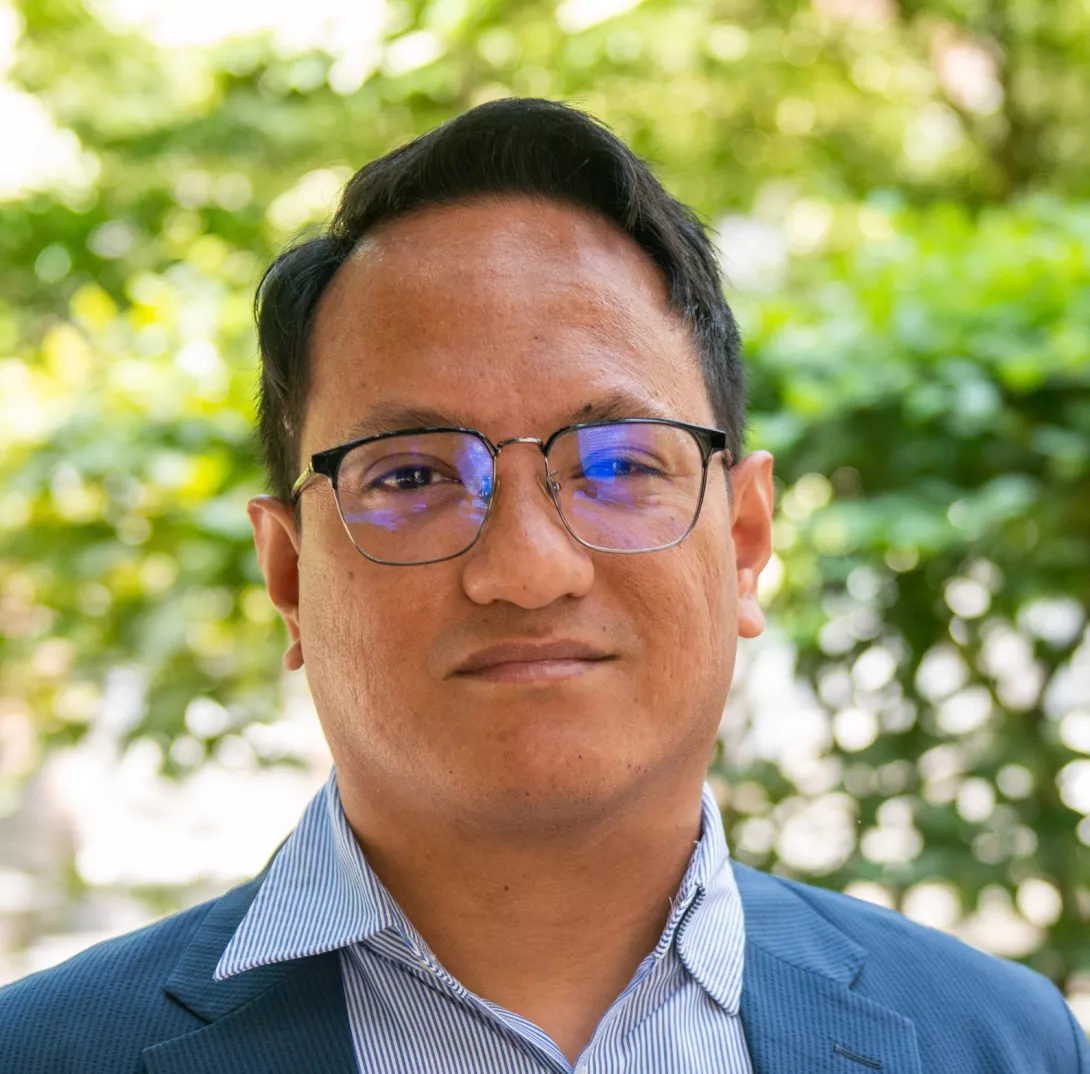
A word about your training and career
I am Dr. Kerby C. Alvarez, an Associate Professor from the Department of History, University of the Philippines Diliman (UP Diliman). I have been teaching for 13 years, since year 2010. I received my doctorate degree (Doctorat en Histoire, Art et Archeóolgie (HISTAR)) from the UNamur in 2019.
My research interests include the Philippine environmental history and history of science, the history of hazards and disasters in the Philippines and Southeast Asia, and the local history of his hometown, Malabon, a small city in the northeast part of the Philippines' capital region. The title of my dissertation work is "A History of Earthquakes in Luzon Island, Philippines in the 19th and 20th Centuries: Historical Seismology, Bureaucratic Responses, and the Socio-Cultural Interpretations of Disasters."
For the Philippine Studies Programme, I am staying in UNamur for almost a month – from 23 May to 20 June 2023.
First time in Namur?
No, I first arrived here in August 2015 when I started my doctoral studies under the supervision of Prof. Isabelle Parmentier. I went to the Philippines at the end of 2015 and since then, in intervals, I visit Namur to do various academic activities.
Since my doctoral studies are focused on research, and my dissertation topic is about the 19th and 20th century Philippines earthquake, I spent most of the time in the Philippines and some time in Madrid, Spain to do archival research.
Why did you choose to study in Belgium, and more specifically in Namur?
Studying in Belgium was a surprise for me. In 2014, just a few months after I obtained my master's degree, I was on my way to submit applications for a doctoral scholarship in Japan. I was really keen on that because similar to the Philippines, Japan has a long history of environmental disasters in their country. But in the middle of the said year, there was an offer for a doctoral position from a project between the University of the Philippines and a consortium of Belgian universities (UCLouvain, ULiège, and UNamur). I applied for it and luckily, I got accepted. And the rest was history. It was not completely planned out, but it turned out to be more than what I expected.
What did it bring you professionally?
First, I received further professional training as a historian from an established professor working on environmental history. Second, I got to experience a type of Jesuit-secular education wherein rigor and freedom in research are at a premium. Third, I was able to conduct research in Europe, where some of the best archives are located. And lastly, I got to expand my academic network in universities in Western Europe.
Can you explain the ongoing collaboration?
The project we are currently working on is the UNamur Philippine Studies Programme. This project is intended to serve as a seed effort not only in laying down the foundation of Philippine Studies in UNamur but also strengthening and consolidating the sporadic research projects about the Philippines in various universities in Belgium. This collaboration is initially thought of in early 2022 and through the efforts of the Office of Senator Loren Legarda and the Department of Foreign Affairs, funds were allotted and UNamur was one of the universities identified where academic partnerships to promote the study of the Philippines can be explored.
Of course, the main challenge to any programme, especially those who have a gargantuan task to fulfil, is operationalizing the network of dedicated scholars who could be part of the program. Similarly, just like any academic partnership, one year would not be enough to establish a strong foundation for intellectual pursuit. I really hope that the program, through continuous funding from both ends, would continue to fully achieve the primary objective of the program of promoting and strengthening Philippine Studies in Belgium.

From a personal point of view, a little word about Belgium or the city of Namur?
Belgium, a mixed bag; a weird and colourful mixture of histories, cultures, and peoples.
Namur, a serene city.
I always tell people that Namur is the complete opposite of the city where I grew up. It's a serene city by the river, a relatively small city that recognizes its rich and turbulent past, and yet embraces the present and looks ahead to the future.
And I have personally seen this for more than four years since I left Namur after I finished my doctoral studies in April 2019. In 2023, I saw a revitalized Namur - a city that is fixated on its old walls and edifices, and yet welcomes modern ideas to further promote what the city could offer.
The Philippine studies programme
The Philippine studies programme is funded by a grant from the Philippine government through the initiative of Senate President Pro Tempore Loren Legarda.
Read the message of Senate President Pro Tempore Loren Legarda (PDF document)
The University of Namur has been chosen by the Philippine government, along with seven other universities worldwide, to promote the various facets of Philippine studies in Belgium and Europe.
This program highlights the collaborations that researchers at the University of Namur have developed with several universities and researchers in the Philippines. It also contributes to the promotion of Philippine studies at an international level. It includes several themes and activities that will run until June 2023, and is also an opportunity to explore new avenues of collaboration at academic, cultural and political levels.
Find out more about the Philippine studies programme on the website